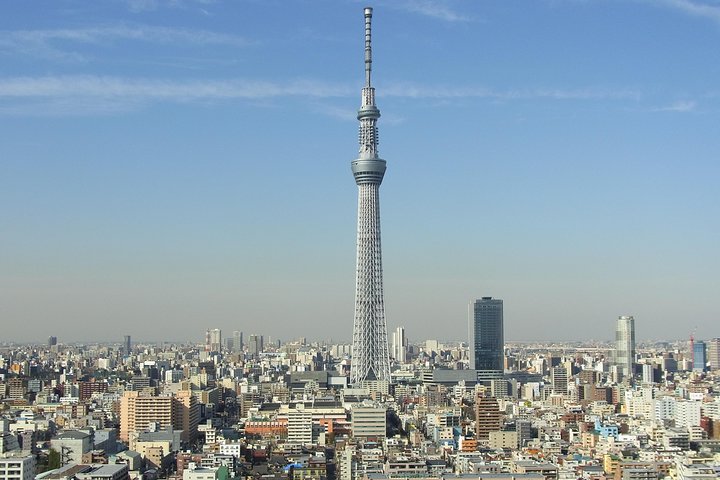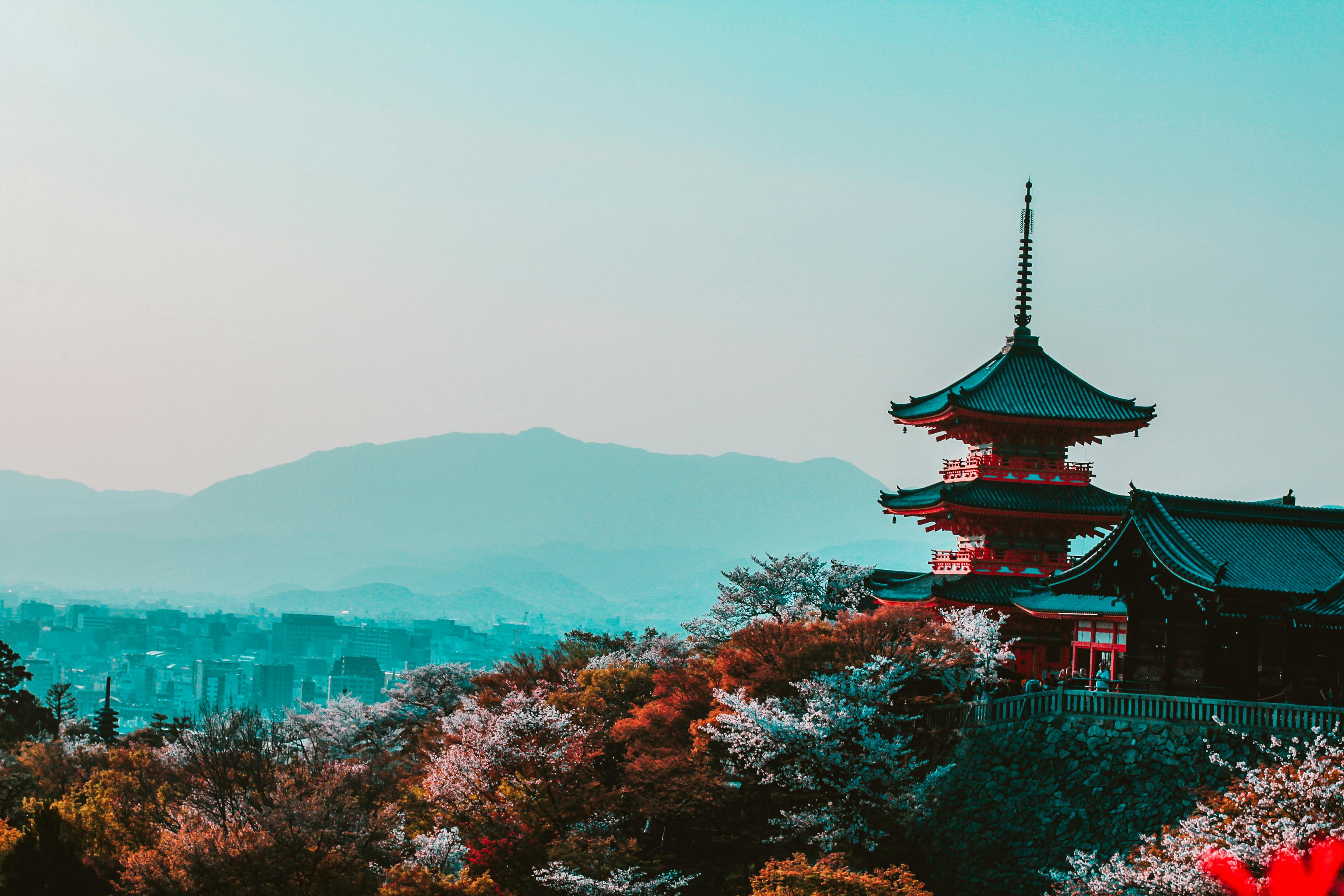14 Days in Japan: Tokyo, Kyoto, and Osaka Itinerary for Culture, Cuisine, and Castles
Japan rewards the curious. In a single day you can offer incense under a 7th-century temple roof, slurp ramen at a stand where office workers have lunched for decades, then watch Shibuya’s famous scramble pulse with a modern rhythm. This two-week itinerary traces a classic arc—Tokyo, Kyoto, and Osaka—balancing icons with local gems, and adding day trips and guided experiences that deepen the story.
From Edo’s shogunate days to postwar pop culture, Tokyo is a living archive; Kyoto’s temples, gardens, and tea traditions hold centuries of carefully tended craft; Osaka has long been Japan’s kitchen, where merchants, comedians, and cooks perfected the art of convivial eating. You’ll move mostly by Shinkansen, Japan’s fast, punctual bullet trains, then on foot through compact neighborhoods stitched with cafes, shrines, markets, and sake bars.
Practical notes: IC cards (Suica/PASMO/ICOCA, including mobile versions) work on nearly all subways and buses. Luggage forwarding (TA-Q-BIN) can ship bags between hotels overnight. Tipping isn’t customary; a bow and “arigatou gozaimasu” goes far. Bring an International Driving Permit if you plan novelty go-karts. Peak seasons—late March–early April for cherry blossoms, November for autumn foliage—book out early.
Tokyo
Days 1–5: Neon skylines, quiet shrines, and a Mt. Fuji day out
Start in Tokyo, a city of contrasts. Begin at Asakusa’s Sensō-ji to catch morning incense and street snacks on Nakamise-dori (try ningyō-yaki sponge cakes). Cross to Ueno’s museums or head south to Meiji Shrine’s forested paths, a contemplative counterpoint to Harajuku’s fashion scene.
Afternoons fit well with modern vantage points: Shibuya Sky for sunset over the crossing, or Tokyo Skytree for a sweeping 360°. If you love immersive art, book teamLab Borderless at Azabudai Hills—light, sound, and mirrors blur the line between gallery and dream.
- Guided highlights: Consider a one-day coach overview, then dive deep into food or subcultures with specialized tours. For Fuji/Hakone, a full-day escape pairs mountain views with hot-spring valleys.
- Neighborhood strolls: Daikanyama and Nakameguro (boutiques, cafes), Yanaka (old-town lanes), and Kappabashi (kitchenware heaven).
- After dark: Golden Gai’s tiny bars in Shinjuku are atmospheric; in Shimokitazawa, vinyl shops and craft beer taprooms hum late.
-
1-Day Tokyo Bus Tour

1-Day Tokyo Bus Tour on Viator A polished snapshot of essentials like Meiji Shrine and Skytree, with a matcha experience and a Tokyo Bay cruise on select days—great for orientation.
-
Tokyo Tsukiji Fish Market Food and Culture Walking Tour

Tokyo Tsukiji Fish Market Food and Culture Walking Tour on Viator Snack your way through Tsukiji’s outer market—tamago-yaki omelets, tuna bites, and hidden stalls—while learning the market’s history.
-
Shibuya Official Street Go-Kart in Shibuya Annex

Shibuya Official Street Go-Kart in Shibuya Annex on Viator Zip past Shibuya Crossing in character costumes. An International Driving Permit is required; bring your passport.
-
Mt Fuji and Hakone 1-Day Bus Tour Return by Bullet Train

Mt Fuji and Hakone 1-Day Bus Tour Return by Bullet Train on Viator From the Fuji 5th Station to a Hakone cruise and a Shinkansen ride back—efficient and scenic, with weather-dependent Fuji views.
- Coffee & breakfast: Koffee Mameya (Omotesando) for curated beans; Onibus Coffee (Nakameguro) beside the tracks; Fuglen (Shibuya) for Nordic roasts; Kimuraya (Ginza) for anpan sweet rolls.
- Lunch ideas: Afuri (Harajuku) for citrusy yuzu-shio ramen; Toritomon or Toritetsu for yakitori lunch sets; Kaneko Hannosuke (Nihonbashi) for overflowing tempura bowls.
- Dinner picks: Uoshin Nogizaka (seafood izakaya with daily chalkboard catches); Kagari (Ginza) for silky tori-paitan ramen; Sushino Midori (Shibuya/Ginza) for high-value sushi—expect a queue; Nabezo (Shinjuku) for shabu-shabu feasts.
- Nightcaps: Bar BenFiddich (Shinjuku, creative botanicals) or tiny Golden Gai counters—choose one with a low cover and friendly signage.
- The Peninsula Tokyo — Imperial Palace views, stellar concierge, and a central Ginza/Marunouchi location.
- The Ritz-Carlton, Tokyo — High-rise sophistication in Roppongi with excellent bars and skyline vistas.
- Hotel Gracery Shinjuku — Midrange, playful Godzilla icon, steps from Shinjuku nightlife.
- Hotel Sunroute Plaza Shinjuku — Reliable, comfortable, and handy to JR lines.
- Keio Plaza Hotel Tokyo — Larger rooms by Tokyo standards, rooftop views, easy transport.
- VRBO apartments in Tokyo | Hotels.com: Tokyo search
- Flights: Compare fares to Haneda (closer) or Narita on Trip.com and Kiwi.com. From major US hubs, roundtrips often run ~$700–$1,200 off-peak.
- Airport transfers: Haneda–central Tokyo by Monorail or Keikyu in ~20–30 minutes (~$3–$6). Narita Express to Tokyo Station ~60 minutes (~$20–$25).
Travel to Kyoto (Morning, Day 6)
Take the Tokaido Shinkansen from Tokyo to Kyoto. Nozomi trains take about 2h15; Hikari about 2h40. Expect ~$95–$110 one-way reserved. Book seats and times on Trip.com Trains. Depart around 8–9 a.m. and arrive before lunch.
Kyoto
Days 6–10: Timeless temples, tea houses, and garden afternoons
Kyoto’s magic is best in the calm hours. Catch sunrise at Fushimi Inari Taisha and its tunnel of vermilion torii. Wander the stone lanes of Sannenzaka and Ninenzaka to Kiyomizu-dera, then pause for a matcha soft-serve with hillside views.
Dedicate another day to Arashiyama: bamboo grove at dawn, Tenryu-ji’s Zen gardens, then riverbank boats. Northward, the Golden Pavilion (Kinkaku-ji) shimmers differently with the light, and the Philosopher’s Path links temples with seasonal blossoms.
- Craft & culture: Seek Nishiki Market’s pickles, tofu, and knives; visit a small tea house for a whisked matcha. Evenings in Gion and Pontocho Alley glow with lanterns and wooden latticework; quiet etiquette is essential.
-
PERFECT KYOTO 1-Day Bus Tour

PERFECT KYOTO 1-Day Bus Tour on Viator A well-paced circuit to Kyoto’s essentials—ideal if you want a guided overview without navigation stress.
-
Kyoto Gion Geisha District Walking Tour - The Stories of Geisha

Kyoto Gion Geisha District Walking Tour - The Stories of Geisha on Viator Context-rich evening stroll with etiquette guidance and the history of geiko and maiko traditions.
-
Private Kyoto Tour with Licensed Guide & Vehicle

Private Kyoto Tour with Licensed Guide & Vehicle (Max 15 persons) on Viator Customizable and comfortable if traveling with family or mobility needs; see more in a day without transit hops.
-
10 Must-see Spots in Kyoto One Day Private Tour

10 Must-see Spots in Kyoto One Day Private Tour (up to 7 people) on Viator Efficient for first-timers who want a “greatest hits” day without backtracking.
- Coffee & breakfast: % Arabica (Higashiyama) for latte art with pagoda views; Weekenders Coffee (hidden courtyard roastery near Karasuma); Vermillion (by Fushimi Inari) post-shrine espresso.
- Lunch ideas: Omen (near Ginkaku-ji) for thick udon and seasonal veg; Menbaka Fire Ramen (near Nijo) for a theatrical charring of scallion-laden broth; Honke Owariya (since 1465) for classic soba.
- Dinner picks: Gion Namba for precise kaiseki; Katsukura (Sanjo) for crisp tonkatsu with sesame grinding ritual; Izuju (Gion) for Kyoto-style pressed mackerel sushi (sabazushi).
- Sweets: Nishiki Market for yuba (tofu skin) bites and soy donuts; Demachi Futaba for fresh daifuku (go early).
- The Ritz-Carlton, Kyoto — Riverfront serenity, refined dining, and easy access to Gion.
- Kyoto Tokyu Hotel — Calm, understated rooms with a peaceful inner courtyard.
- Kyoto Brighton Hotel — Spacious rooms, strong service near the Imperial Palace.
- Hotel M's Plus Shijo Omiya and Hotel M's Est Shijo Karasuma — Value-driven, central bases.
- Piece Hostel Sanjo — Design-forward hostel with welcoming common areas.
- VRBO homes in Kyoto | Hotels.com: Kyoto search
Travel to Osaka (Morning, Day 11)
From Kyoto Station, the JR Special Rapid to Osaka Station takes ~30 minutes (~$5). Shinkansen from Kyoto to Shin-Osaka is ~13 minutes (~$20–$25), then local metro. Book rail on Trip.com Trains. Depart around 9 a.m. to check in before lunch.
Osaka
Days 11–14: Street food, castles, and a Nara day trip
Osaka is exuberant. Start at Dotonbori, where neon crabs and the Glico runner blaze over canal-side eateries. Grab takoyaki spheres hot off the griddle and wander Shinsaibashi’s covered arcade for fashion and snacks.
Spend a morning at Osaka Castle and its museum; later, ride up to the Umeda Sky Building’s floating garden for sunset views. In Shinsekai, retro signboards and skewer shops (kushikatsu) feel like time travel—mind the “no double-dipping” sauce rule.
- Day trip (flex on Day 12 or 13): Nara — 45–50 minutes from Osaka-Namba. Feed (respectfully) the semi-wild deer, and marvel at Tōdai-ji’s Great Buddha—one of the world’s largest wooden halls.
-
Osaka Food Tour - 13 Delicious Dishes at 5 Local Eateries

Osaka Food Tour - 13 Delicious Dishes at 5 Local Eateries on Viator Locals-only counters and classic bites—okonomiyaki, yakitori, and more—led by a guide steeped in the city’s food lore.
-
Hungry Osaka Street Food Tour: 15 Dishes & 3 Drinks - Like a Local

Hungry Osaka Street Food Tour: 15 Dishes & 3 Drinks-Like a Local on Viator Award-winning evening feast through Shinsekai—come hungry.
-
Osaka Kickstart: Hotspots and Hidden Gems

Osaka Kickstart: Hotspots and Hidden Gems Private or Group Tours on Viator Great first-evening walk to map neighborhoods and get local intel on where to eat the rest of the trip.
- Coffee & breakfast: LiLo Coffee Roasters (precision pour-overs), Granknot Coffee (Namba), and citywide kissaten for thick toast and eggs.
- Lunch ideas: Okonomiyaki Mizuno (Dotonbori) flips the city’s signature savory pancake; Takoyaki Yamachan or Kukuru for octopus puffs; Endo Sushi (Central Fish Market) for classic nigiri sets.
- Dinner picks: Matsusakagyu Yakiniku M (premium beef grilled at your table), Kushikatsu Daruma (golden skewers, spicy dip), Ichiran (solo-booth tonkotsu ramen, open late).
- Drinks: Craft Beer Base or Minoh Beer taps; cocktail fans can seek Bar Nayuta’s inventive serves near Namba.
- The St. Regis Osaka — Butler service on Midosuji, walkable to Shinsaibashi.
- Swissotel Nankai Osaka — On top of Nankai-Namba Station; unbeatable for airport and Koya-san access.
- Hotel Universal Port — Spacious rooms steps from Universal Studios Japan.
- Hotel Sunroute Osaka Namba — Good-value base near Dotonbori and Shinsaibashi arcades.
- Hotel Taiyo — Budget option near Shinsekai and Tennoji transport.
- VRBO apartments in Osaka | Hotels.com: Osaka search
Departing Japan
Fly out of Osaka’s KIX (or Itami for domestic hops). Compare fares on Trip.com or Kiwi.com. The Nankai Rapi:t or JR Haruka gets you to KIX in ~35–45 minutes.
Suggested day-by-day blocks at a glance
- Days 1–2 (Tokyo): Asakusa, Ueno or Meiji Shrine/Harajuku, Shibuya Sky at sunset; ramen and an izakaya night.
- Day 3 (Tokyo): Guided overview with the 1-Day Tokyo Bus Tour; explore Ginza galleries and cocktail bars.
- Day 4 (Tokyo): Tsukiji Food Tour breakfast; teamLab Borderless; Daikanyama coffee crawl.
- Day 5 (Tokyo): Mt. Fuji & Hakone day trip with Shinkansen return.
- Day 6 (Travel Tokyo→Kyoto AM): Philosopher’s Path, Ginkaku-ji, Pontocho dinner.
- Day 7 (Kyoto): Fushimi Inari sunrise, Kiyomizu-dera, Gion Night Walking Tour.
- Day 8 (Kyoto): Arashiyama bamboo grove and Tenryu-ji; river boats.
- Day 9 (Kyoto): Kinkaku-ji, Ryoan-ji rock garden; Nishiki Market tasting.
- Day 10 (Kyoto): Private or bus tour to tie up remaining temples/tea.
- Day 11 (Travel Kyoto→Osaka AM): Dotonbori, Shinsaibashi shopping, food tour at night.
- Day 12 (Osaka): Osaka Castle, Umeda Sky Building, kushikatsu in Shinsekai.
- Day 13 (Osaka or Nara): Nara day trip; back to Osaka for yakitori or ramen.
- Day 14 (Osaka): Last-minute markets and souvenirs; depart from KIX.
Across two weeks you’ll sample Japan’s contrasts—ancient cedar and glass towers, serene tea and street food frenzy—without rushing. This route blends famous sights with local haunts and smart transport, so your memories linger like the last sip of matcha.

